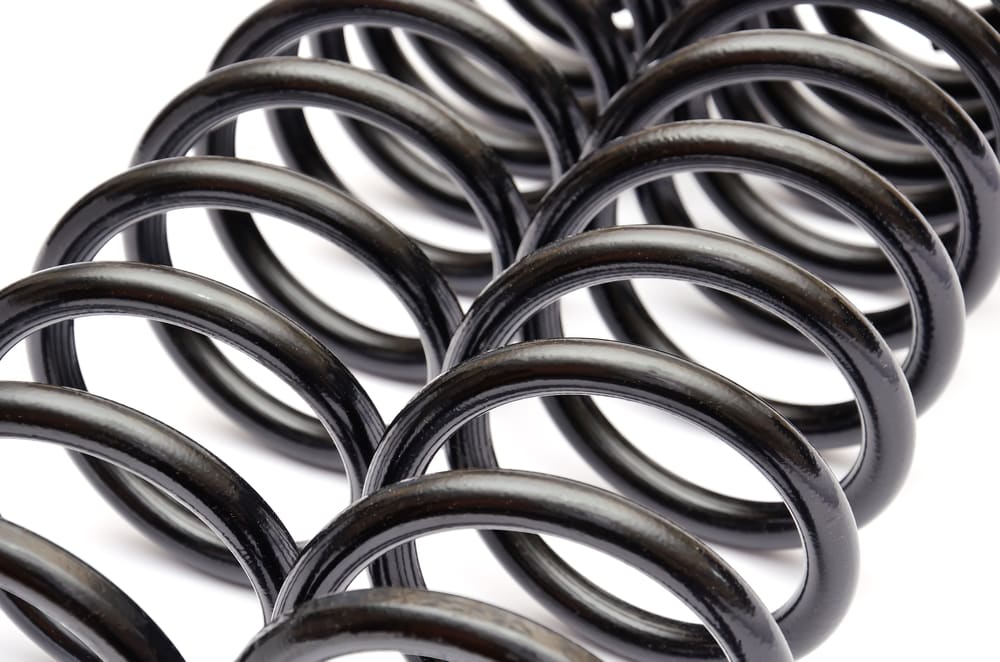

Coil springs, also known as suspension springs, are the part of your vehicle that helps cut down on the excessive up and down movement when you are driving. These springs support the vehicle and soak up the bumps that the shocks ultimately absorb when you’re driving across rough terrain.
Depending on the configuration, springs can be found between the axle and the chassis, or between the control arm and the chassis. Wherever the springs are located, the springs need to be kept in solid working order or your vehicle is going to have a rough ride. When pressure is applied to springs, they compress to maximize friction between the road and the tires.
Here are some thoughts to consider when making a decision on the type of suspension spring that is right for your vehicle:
Type of spring: Two main types of suspension springs are available on the market – helical springs and progressively-wound springs.
Helical springs: Helical springs are made up of wires that are shaped into a helix and are used for tensile loads. These springs are easy to install, and are available in a variety of different dimensions.
Progressively-wound springs: Progressively-wound springs are an upgrade to helical springs, and are use for off-road applications as the coil pitch gets tighter as it reaches the top aiding handling, traction, and control.
Spring material: High-quality coil springs should be made from chrome-silicone or chrome-vanadium. The higher diameter tolerances are also beneficial. The coil springs should also be mandrel-bent.
There are many high-quality suspension springs available on the market today.
YourMechanic supplies top-quality suspension springs to our certified mobile technicians. We can also install a suspension spring that you've purchased. Click here to get a quote and more information on suspension spring replacement.



